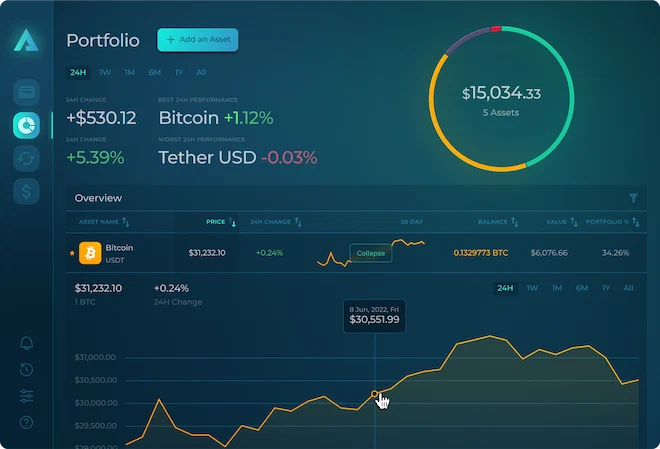Cryptocurrency Wallet vs Exchange
Nov 9, 2022Various cryptocurrency safety guidelines, including our own, often suggest getting your long-term holdings off centralized exchanges (CEX). With the FTX exchange crash happening before our eyes, this recommendation is addressed even more deliberately.
Let’s dig a little deeper and check what’s the difference between storing your cryptocurrency on wallets and exchanges and why it’s extremely risky to leave crypto on any exchange.
Where to Hold Cryptocurrency?
Obviously, in the safest place possible. But sometimes people prefer convenience over security.
Exchange accounts are easily restorable: if you forget your password, you can restore it and retain access, while non-custodial wallets demand that, besides passwords, you remember the seed phrase.
Keeping crypto on any CEX makes trading easy as you don’t need to move funds from wallets to the exchange and back.
Exchanges offer a variety of tools to earn passive income if you lock up your crypto there for a certain period.
Is this convenience worth the risks?
Exchange Wallet vs Personal Wallet
Ownership
Each wallet functions on these three elements:
- Public key - public address (similar to email address)
- Private key - password to access your crypto (password to this email address)
- Seed phrase - 12- or 24-word recovery code to retrieve your keys and funds from any device
You may have heard the saying, “not your keys, not your coins.” The phrase mainly refers to private keys, as they are required to process any operation with your crypto. Be it compromised - your money is gone. A seed phrase is restoring access to your private keys, so the security of this should be your top priority.
| Source: Arctic Wallet |
⚠️ If you are not given a seed phrase and your private keys when creating an account, you simply do not own your crypto.
The terms of use for any exchange provider reflect these points in detail:
| Terms of Use / Source: FTX |
When setting up a non-custodial wallet, you are shown a generated seed phrase and reminded to keep your private key and seed phrase under extreme security. Take a look at Arctic Wallet:
| Source: Arctic Wallet |
Not owning your crypto is fraught with multiple risks 👇
Security
Crypto exchanges remind banks in many ways, except for one significant detail ーthey are not regulated and not insured against any security breach or system outages.
| Terms of Use - Source: FTX |
| Source: Arctic Wallet |
Data Privacy
| Source: Arctic Wallet |
Convenience or Safety?
Nowadays you don’t have to really choose one or another. Non-custodial software wallets (hot wallets) deliver both.
Arctic Wallet is a non-custodial multichain wallet that gives you full custody of your money, doesn’t store your private data, and offers handy tools to manage your assets: in-app exchange, withdrawal, and purchase options.
Exchanges make the start of your crypto journey easier, so it's perfect for beginners testing trading in small sums. Day traders also keep some portion of their holdings on exchanges to be able to react quickly and close profitable orders. In any other cases, learn how to store crypto in your own wallet and beware of risks associated with misusing exchanges.


